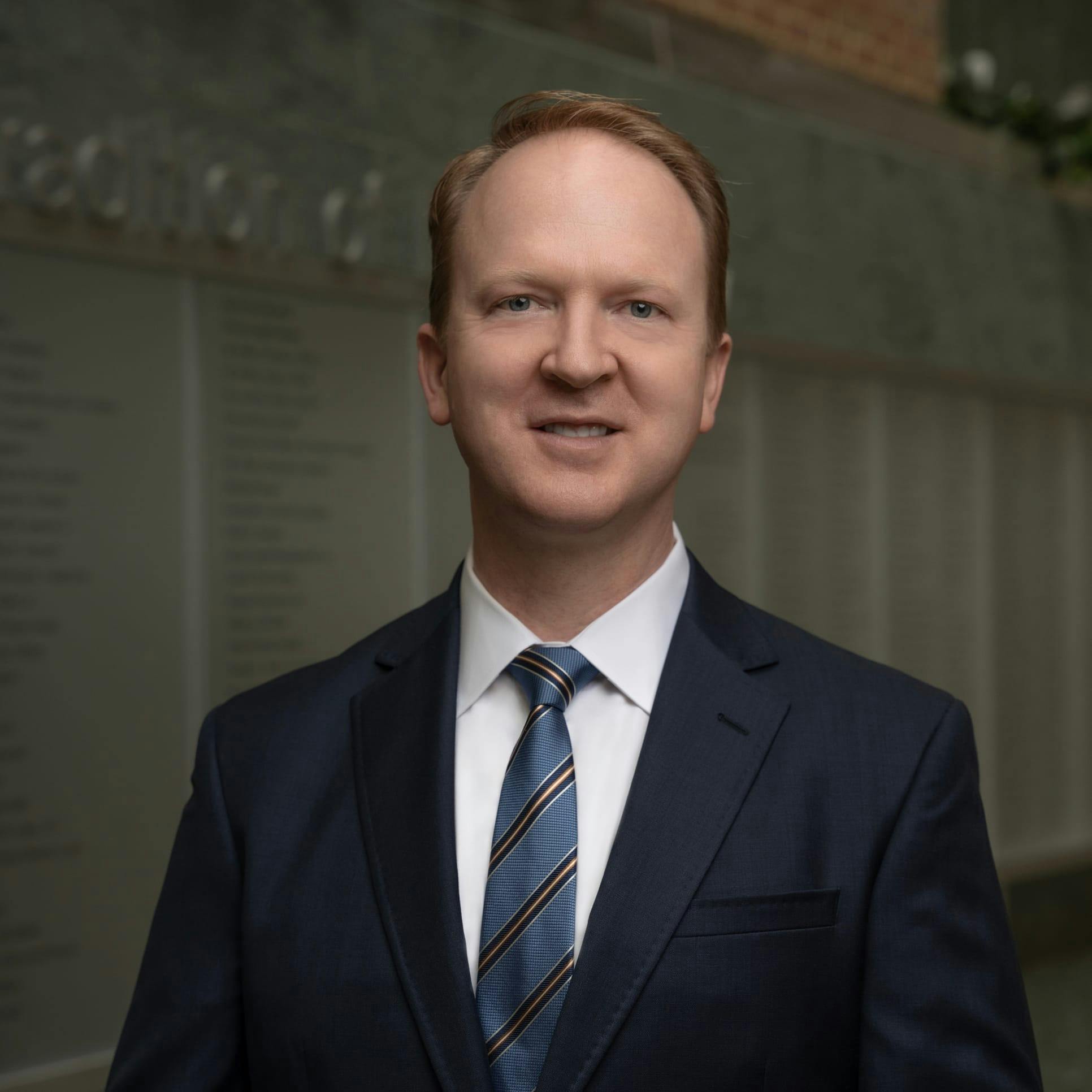Degenerative spine disease refers to conditions caused by arthritis, or “wear and tear,” of the spine that can lead to pain, reduced mobility and level of function, and neurologic problems. Patients can experience degenerative spinal disease in the neck (cervical spine), upper back (thoracic spine), or lower back (lumbar spine).
Cervical, Thoracic and Lumbar Degenerative Spine Disease in Arlington, VA


What Causes Degenerative Spine Disease?
The spine and surrounding muscles play an important role in allowing us to stand, walk, and carry out our day-to-day lives. The discs and joints help distribute and absorb biomechanical forces, and the spine also encloses the spinal cord and nerves that send and receive signals from the brain to the rest of the body. As we age, the discs and joints develop arthritis, as in other joints, resulting in neck and back pain and decreased mobility. Over time, arthritis can build tissue or disc bulging and herniation, leading to pressure on the nerves, resulting in nerve pain and neurologic symptoms.
Symptoms of Degenerative Disc Disease
Symptoms vary but commonly include persistent back or extremity pain, discomfort during movement, and, in some cases, numbness or tingling sensations or weakness. Specific symptoms may manifest depending on the region of the spine affected by degenerative disc disease:
Cervical Region:
- Persistent neck discomfort or pain.
- Pain radiating into the shoulders, arms, or hands.
- Reduced range of motion and stiffness.
- Headaches originating from the neck.
- Numbness or tingling in the arms.
- Muscle weakness in the arms.
- Coordination and balance issues.
- Altered reflexes.
Thoracic Region:
- Persistent pain in the upper and middle back.
- Reduced flexibility and thoracic spine stiffness.
- Pain extending to the chest or abdomen.
- Weakness in the muscles of the upper back.
- Numbness or tingling in the torso.
- Difficulty with twisting or bending movements.
Lumbar Region:
- Persistent lower back pain.
- Pain traveling into the buttocks or legs.
- Reduced flexibility and lower back stiffness.
- Weakness in the muscles of the lower back and legs.
- Numbness or tingling in the legs or feet.
- Challenges with prolonged standing or walking.

Why Choose Virginia Neurosurgeons for Degenerative Spinal Conditions Care?
At Virginia Neurosurgeons, our board-certified neurosurgeons have extensive training in the diagnosis and surgical management of spinal conditions. What sets Virginia Neurosurgeons apart from other spinal surgeons is our comprehensive training as neurosurgeons. We approach each case by integrating the patient’s symptoms, imaging findings and diagnostics, and detailed neurologic assessment to diagnose the patient and formulate a personalized treatment plan. We pride ourselves on ethical and honest practices, serving as trusted advocates and partners for our patients’ medical care. Our commitment to open communication ensures that patients fully understand their conditions and treatment options, even if they are not surgical candidates. Our surgical interventions aim to reduce pain, preserve and restore neurologic function, and provide clinically meaningful benefits, improving the quality of life for our patients.
How Are Degenerative Spinal Conditions Diagnosed?
At Virginia Neurosurgeons, our board-certified neurosurgeons adopt a comprehensive approach to understanding the specific factors contributing to your condition. By combining state-of-the-art diagnostic tools, Virginia Neurosurgeons ensures a precise understanding of your condition, enabling the development of personalized and effective treatment strategies for each patient. Our expert team follows a meticulous process to procure evidence of exactly what is occurring:
Medical History:
Our surgeons will review your symptoms and medical history to help you understand and identify sources of pain and neurologic symptoms.
Physical Examination:
Conducting a detailed physical examination allows our neurosurgeons to assess reflexes, muscle strength, and sensory function, aiding in pinpointing affected nerve pathways.
Imaging Studies:
Advanced imaging techniques, such as MRI or CT scans, are employed to visualize the spine and identify structural abnormalities, including herniated discs or spinal stenosis. X-rays may be ordered to assess your spinal alignment and evaluate for instability.
Electrodiagnostic Tests:
Nerve conduction studies and electromyography (EMG) help evaluate the electrical activity of muscles and nerves, aiding in the localization of nerve compression.
Diagnostic Injections:
Targeted injections, such as epidural steroid injections, can help confirm the source of pain and further guide the treatment plan.

How Are Degenerative Spinal Conditions Treated?
Once our surgeons have made a diagnosis of a degenerative spinal disease, they will review with you non-surgical and surgical treatment options to create a management plan specific to your case. Treatments for degenerative spinal conditions include:
Non-Invasive Interventions:
- Medications for pain management and inflammation.
- Physical therapy to improve strength and flexibility.
- Activity modification to reduce strain on the spine.
- Acupuncture or dry needling.
- Chiropractic care.
Minimally Invasive Procedures:
- Epidural steroid injections to alleviate pain in the nerves and spinal joints.
- Radiofrequency ablation (specialized heat treatment) to disrupt nerve signals causing pain.
Surgical Interventions:
- Discectomy (disc surgery) to remove disc material pressuring on nerves.
- Spinal fusion to stabilize the spine and reduce pain.
- Artificial disc replacement to maintain spinal motion.
- Laminectomy to relieve pressure on spinal nerves.
- Minimally invasive procedures to decompress or stabilize the spine while minimizing tissue disruption.
Comprehensive Rehabilitation Programs:
- Customized exercise regimens for ongoing strength and flexibility.
- Lifestyle modifications for long-term spine health.
- Patient education to promote self-management and prevent future issues.
Many patients will benefit from non-surgical therapies. Patients who do not respond to conservative therapy may be surgical candidates. Not all patients with degenerative disc disease may benefit from surgery, however. At Virginia Neurosurgeons, we will provide you with our honest recommendation on the most effective treatment for your condition, even if it is not surgical.

Schedule Your Consultation with Virginia Neurosurgeons Today
Experience relief from disc herniation symptoms—schedule a consultation with Virginia Neurosurgeons today. Our expert team offers personalized care and effective interventions tailored to your needs. Take the first step toward improved spinal health and enhanced well-being.
